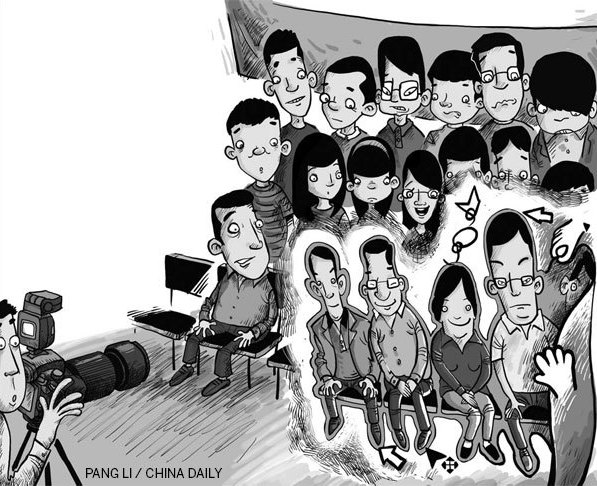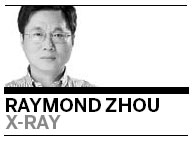The magic of PhotoShop

Photographs involving officials must conform to the hierarchy so inexorable in Chinese tradition. Sometimes the shady practice of 'touching up' is used to achieve that goal.
PhotoShop is such a magical application, combining the veracity of photography with the artifices of old-style portraiture. When a moment of random truth is not ideal, one is tempted to fiddle with it, touching it up to the level of presentability.
The latest illustration involves a group photo of a graduating class in Guangdong province. As four of the top administrators of a high school could not make it to the scene, the front center of the picture was reserved for them and their images were later digitally implanted. But whoever was assigned post-production did a poor job, with the coloring of the two portions incongruous with each other, and one of the teachers even missing a leg in the final printout.
Some students regarded it as an insult and refused to take the doctored picture. The school authorities explained that the four "leaders" had to be elsewhere that day and regretted they could not make it to the photo shoot. Besides, it is a common practice on such occasions, they said, promising to hire a better PhotoShop operator to merge the added image more flawlessly into the larger picture.

In June 2011, a government website in Sichuan province posted a photo of three officials inspecting a newly completed road. But the three of them seem to be floating in the air as there are no shadows and the edges of their bodies have a cardboard cutout feel. Soon, the county government admitted to altering the photo.
The "leaders" did indeed make the inspection tour, as were shown in later disclosed source material, but the background for the real photos was deemed less than ideal. Hence the effort to make it better.
In a way, you have to pity the photographer whose job it is to capture the big boss at his most glowing instant. What if you have no access to the best vista point? What if someone rambles by and blocks your view? What if the No 2 person is closer to you than the No 1 guy, in which case the relatively less important person takes the focal point?
Chinese society is big on hierarchy. Who sits where at an official function is almost elevated to a science. One blunder and you can kiss your career in officialdom goodbye. But a photographer does not have the luxury of a protocol officer. Normally he does not have the power to tell the VIPs where to stand and where to sit. He has to translate the order of importance into visual positioning. And no matter how well rehearsed a function is, once it starts it is a live event that cannot be repeated. I mean, usually.
Fortunately, modern cameras allow you to shoot like a machine gun, taking quick successions of photos so that the best expression can be captured. But the best position vis-a-vis the object of the photograph can still be elusive.
For more X-Ray, here
















